New Cervantes law expands protections for immigrant workers
- Details
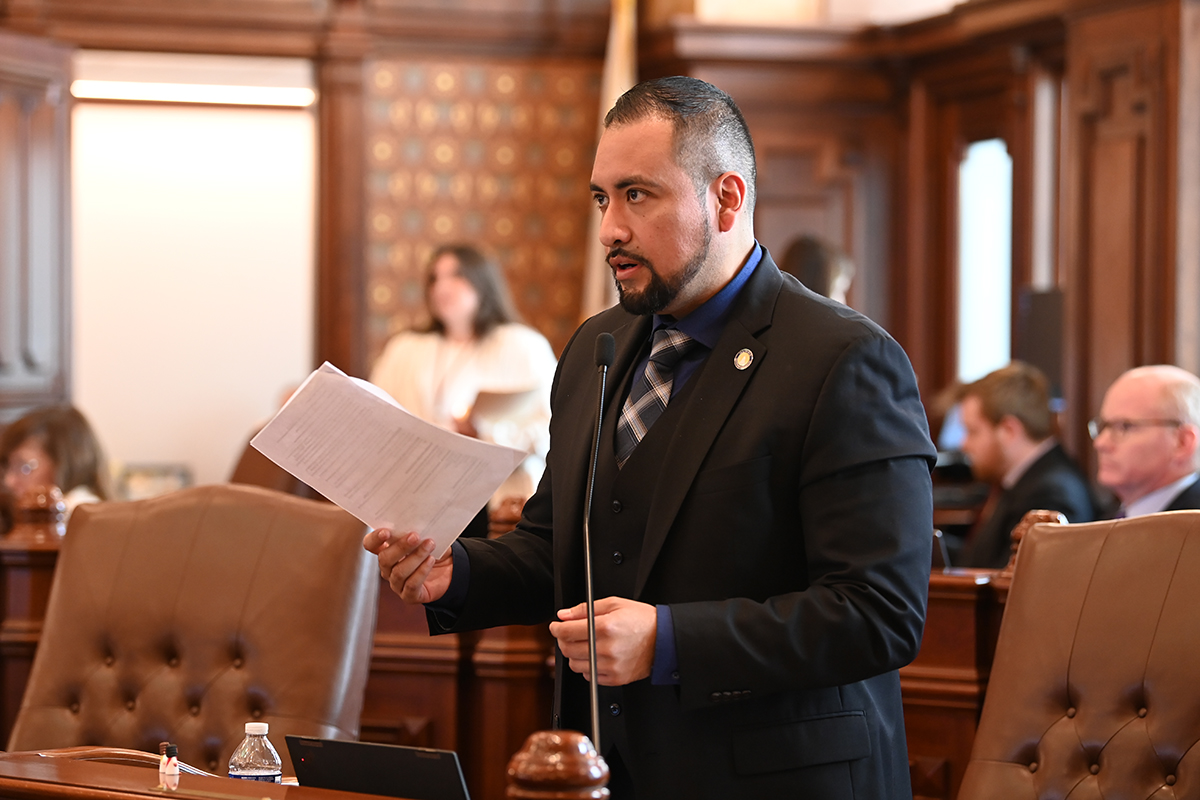
SPRINGFIELD – To protect employees from unfair retaliation from their workplace, State Senator Javier Loera Cervantes led new legislation to shield immigrant workers from surveillance and discrimination based on their perceived immigration status.
“With the increase in ICE raids and anti-immigrant sentiment at an all-time high, our immigrant workers do not feel safe in the workplace,” said Cervantes (D-Chicago). “This law will help ease their minds by establishing protections against discrimination, regardless of their status.”
Read more: New Cervantes law expands protections for immigrant workers
Ventura leads charge to expand Illinois broadband access
- Details
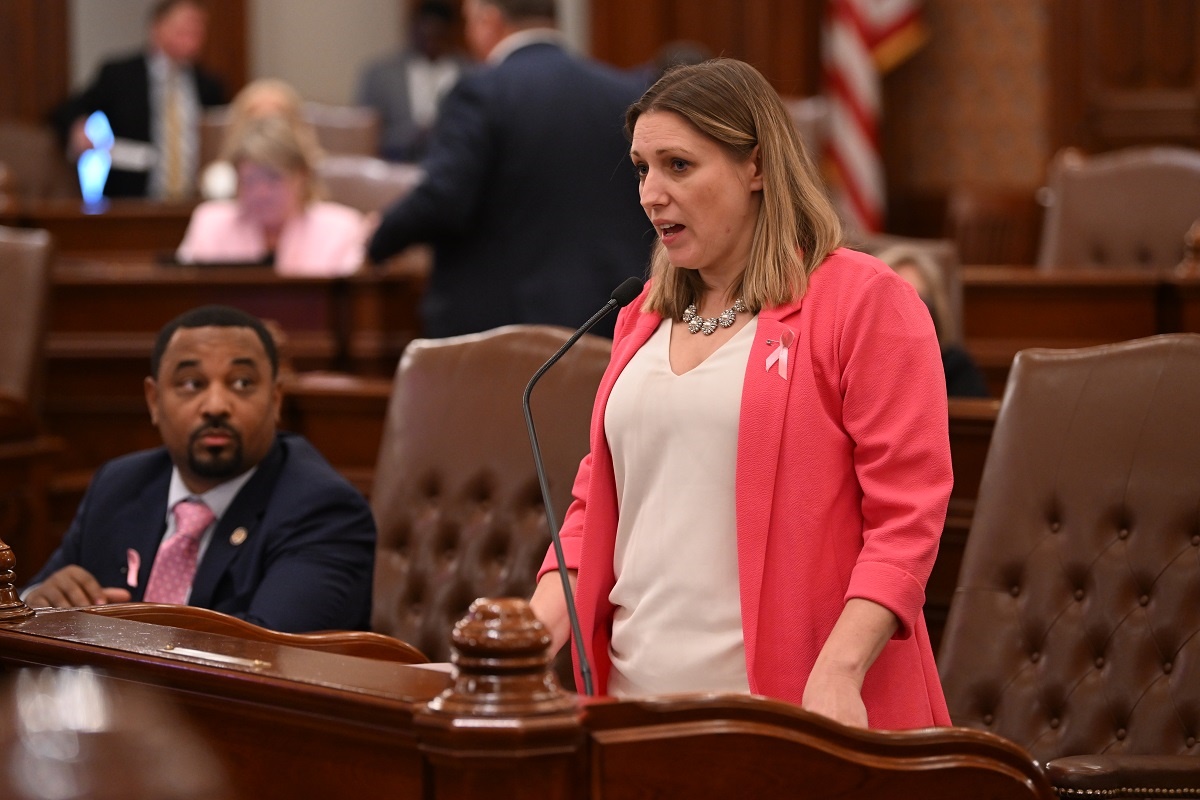 SPRINGFIELD – Despite repeated promises from the federal government, high-speed internet access remains a distant goal for many communities — especially in rural Illinois, where service is often spotty, unreliable or altogether unavailable. In response to federal inaction and recent funding withdrawals, State Senator Rachel Ventura championed on a new law that will provide a strategic state-level response to a growing digital divide.
SPRINGFIELD – Despite repeated promises from the federal government, high-speed internet access remains a distant goal for many communities — especially in rural Illinois, where service is often spotty, unreliable or altogether unavailable. In response to federal inaction and recent funding withdrawals, State Senator Rachel Ventura championed on a new law that will provide a strategic state-level response to a growing digital divide.
“Access to broadband has become critical for many aspects of daily life, especially in education. This law prioritizes anchor institutions to quickly improve our state’s broadband network in the most cost-effective way possible,” said Ventura (D-Joliet). “By utilizing existing and nearby infrastructure, vulnerable communities can increase access to high-speed internet, allowing them better integration into statewide networks and resources.”
The Illinois Century Network (ICN) delivers wholesale internet services to public entities across the state — including schools, libraries and higher education institutions. However, without sufficient federal investment, the burden of expanding reliable broadband increasingly falls to the state.
Read more: Ventura leads charge to expand Illinois broadband access
Sims leads new law to protect Illinois from reckless federal budget
- Details
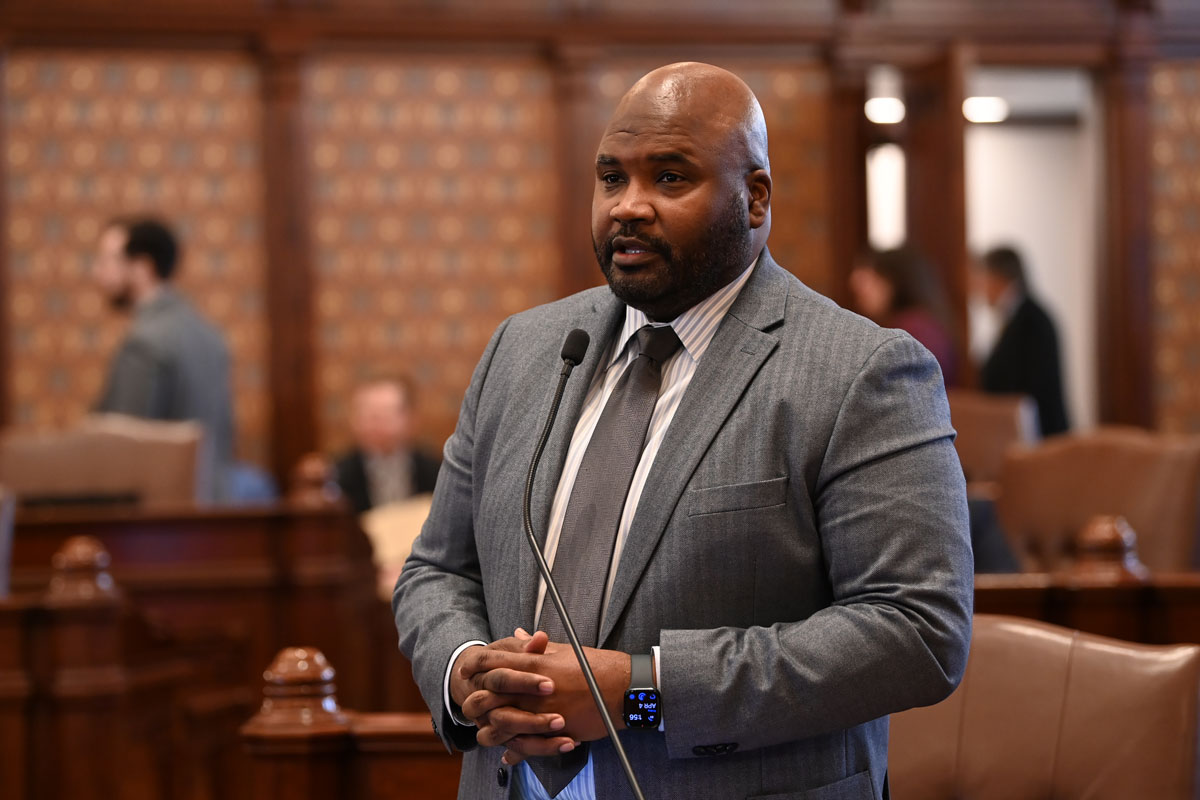 SPRINGFIELD – State Senator Elgie R. Sims, Jr. led the charge to insulate Illinois taxpayers from damaging federal policy shifts, ensuring the state's Fiscal Year 2026 budget remains intact despite the federal administration’s cuts to vital programs.
SPRINGFIELD – State Senator Elgie R. Sims, Jr. led the charge to insulate Illinois taxpayers from damaging federal policy shifts, ensuring the state's Fiscal Year 2026 budget remains intact despite the federal administration’s cuts to vital programs.
"The federal administration is recklessly cutting programs that Illinois families rely on, but we won't let their irresponsibility destabilize our state budget," said Sims (D-Chicago). "This law protects Illinois taxpayers and preserves our ability to fund schools, health care and essential services.”
Read more: Sims leads new law to protect Illinois from reckless federal budget
Peters spearheads law to raise Illinois’ juvenile detention age
- Details
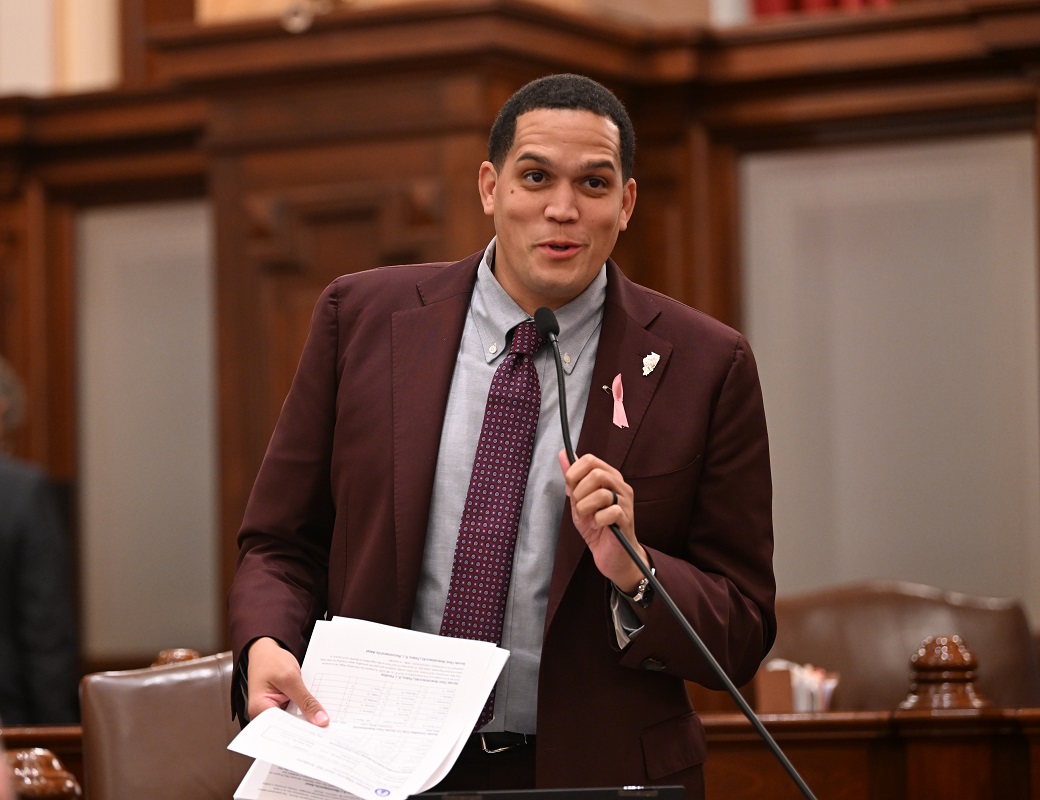 SPRINGFIELD — A new law from State Senator Robert Peters will raise the minimum age at which minors can be detained and limit detention in certain situations where the minor is not charged with a violent crime, making it clear the state is prioritizing rehabilitation and addressing the root causes of delinquent behavior.
SPRINGFIELD — A new law from State Senator Robert Peters will raise the minimum age at which minors can be detained and limit detention in certain situations where the minor is not charged with a violent crime, making it clear the state is prioritizing rehabilitation and addressing the root causes of delinquent behavior.
“We must work together to tackle the underlying issues that are exacerbating delinquency in our neighborhoods – whether those are social, economic, familial or a mix of all,” said Peters (D-Chicago). “We have an obligation to protect the well-being of all individuals, and we do that by breaking the cycles of violence and trauma that are causing young people to engage in any level of criminal activity.”
Peters’ law makes numerous improvements to Illinois’ juvenile justice system. First, it raises the age at which a minor may be detained from 10 years old to 12 years old in 2026 and then to 13 years old – in some situations – in 2027. Under the law, arrest will be used only as a last resort and under strict conditions, and minors will be detained only if there is probable cause to believe they are delinquent and that immediate and urgent detention is necessary, or if they have repeatedly failed to appear at scheduled hearings.
Read more: Peters spearheads law to raise Illinois’ juvenile detention age
More Articles …
Page 3 of 734



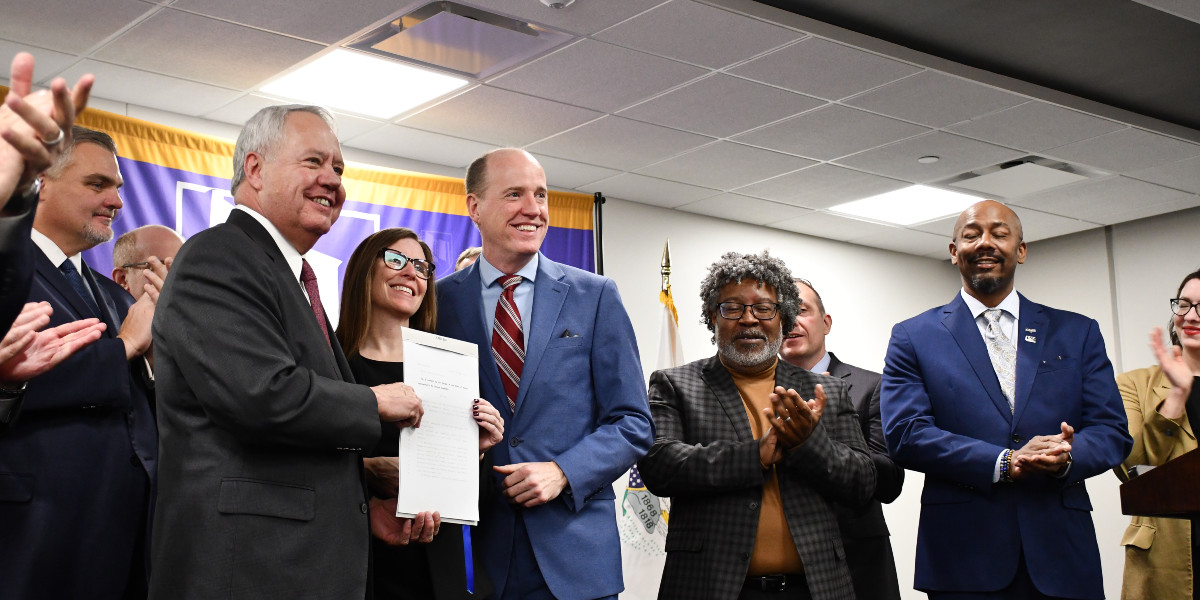

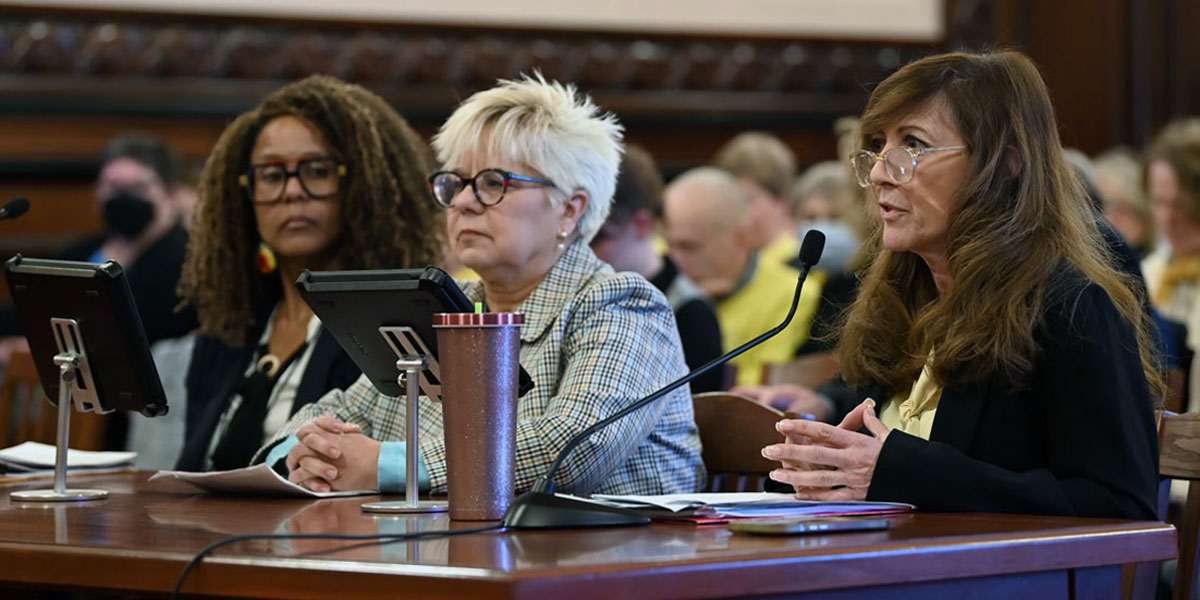


















 © 2026 Illinois Senate Democratic Caucus
© 2026 Illinois Senate Democratic Caucus